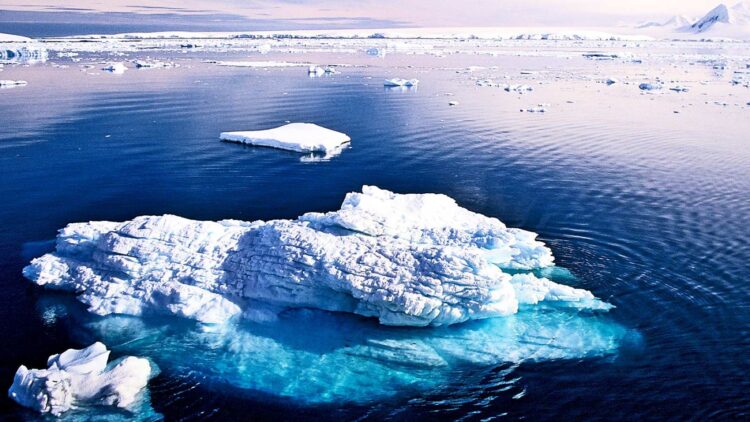Antarctica, the coldest and least populated continent, is among the nations leading the world’s change. This frozen continent occupies one-tenth of the Earth’s surface and is very important regarding the world’s climate. But climate change is not waiting for anyone.
Antarctica is melting at a fast rate, and this will have serious repercussions for ecosystems, economies, and people across the world. A new emerging movement seeks to bring this special area into the limelight to transform environmental policies and how people view government or the natural world’s rights.
Antarctica’s melting ice: A ticking clock for sea level rise
The ice blanket covering Antarctica melts alarmingly, and researchers now fear rising sea levels. According to scientific approximations, sea levels may rise by as much as 190 ft if all the ice in these ice sheets were to melt. This is a clear and present danger to coastal metropolises such as New York, Tokyo, and small island states. The Southern Ocean is also warming; warmer water undercuts the ice shelves. The system is already on the edge of critical tipping points.
Ice also changes the distribution of the Earth’s gravity, and sea levels rise at an unequal rate. Although near the centre of Antarctica, the sea level may at first decrease because of a weaker gravity, places far away will experience much higher rises. This, together with the loss of reflective ice surfaces (the albedo effect), is expected to add to global warming in the future. Researchers are working on improving the accuracy of projection models, but the need for a response has never been more apparent.
In addition, the melting affects currents in the ocean, such as the global conveyor belt, which controls climate. When these systems break down, areas like the tropics may experience extremely unbearable heat, while others may experience frigid weather. The integration of these changes shows that the future of Antarctica is bound with the future of ecosystems and human societies in the world.
A voice for Antarctica: Rethinking global governance
An unprecedented legal initiative has been put forward to grant legal personhood to Antarctica as a juridical subject, similar to a state. Antarctic Rights and this movement contend that the region requires representation in climate change talks. The Antarctic Treaty System has managed Antarctica in the past, and the region has always struggled to deal with contemporary issues such as climate change, invasive species, and tourism. Such critics point out that while the treaty system encourages peace and science, it cannot deal with such problems efficiently.
The proposed declaration would enable Antarctica to speak for itself and become an active player in the global decision-making system, with a “voice for nature.” Supporters want to see scientific representatives and Indigenous people protect the continent’s flora and fauna, including emperor penguins and the Southern Ocean. Such a legal change would bring human laws into accord with natural processes, thus stressing the necessity of the sustainable use of resources in the modern world.
Other countries have used this rights-of-nature strategy before; Ecuador and Colombia have given legal personality to rivers and forests, respectively. Applying this particular line of philosophy to the Antarctic region may lead to a precedent-setting model for the entire world to follow, relying on maintaining ecological values in place of transient benefits. The movement also points to the ethical responsibility to conserve one of the world’s few remaining tracts of pristine land for future generations.
Why protecting Antarctica matters for global biodiversity
This is because Antarctica harbors special species that have evolved to fit the environment that has existed there for millions of years. However, these delicate systems are at risk as the region heats up. Emperor penguins fail to breed because the sea ice they rely on is melting, and starfish and other sea life become more threatened as ocean temperatures rise. Species in Antarctica cannot migrate to other locations, implying that the species will be wiped out if the conditions continue to degrade.
The loss of species in Antarctica means something. Many of the continent’s organisms participate in significant breakthroughs in biotechnology and medicine. We owe the region’s unique biodiversity to many things we use daily, from mechanical lubricants derived from Antarctic fish to frost-resistant crops. It also becomes an economic and humanitarian aspect to protect these ecosystems.
In addition, the Southern Ocean traps as much heat and carbon as any other ocean, making it a critical defence against global climate change. Its degradation could further ramp up the planet’s warming rate, disastrously impacting ecosystems and human societies. Preserving Antarctica is, thus, crucial in the protection of life support systems on planet Earth.
The changes in Antarctica indicate that the world cannot be viewed separately from one another. The ice is melting, currents are changing, and ecosystems are in danger, all pointing to the direction the world needs to go. Giving the land of ice a legal personality and the ability to vote gives us a vision of how the world can be governed and preserved. The time to act is now; the future of Antarctica is not just about saving a continent; it’s about saving lives in this world.

